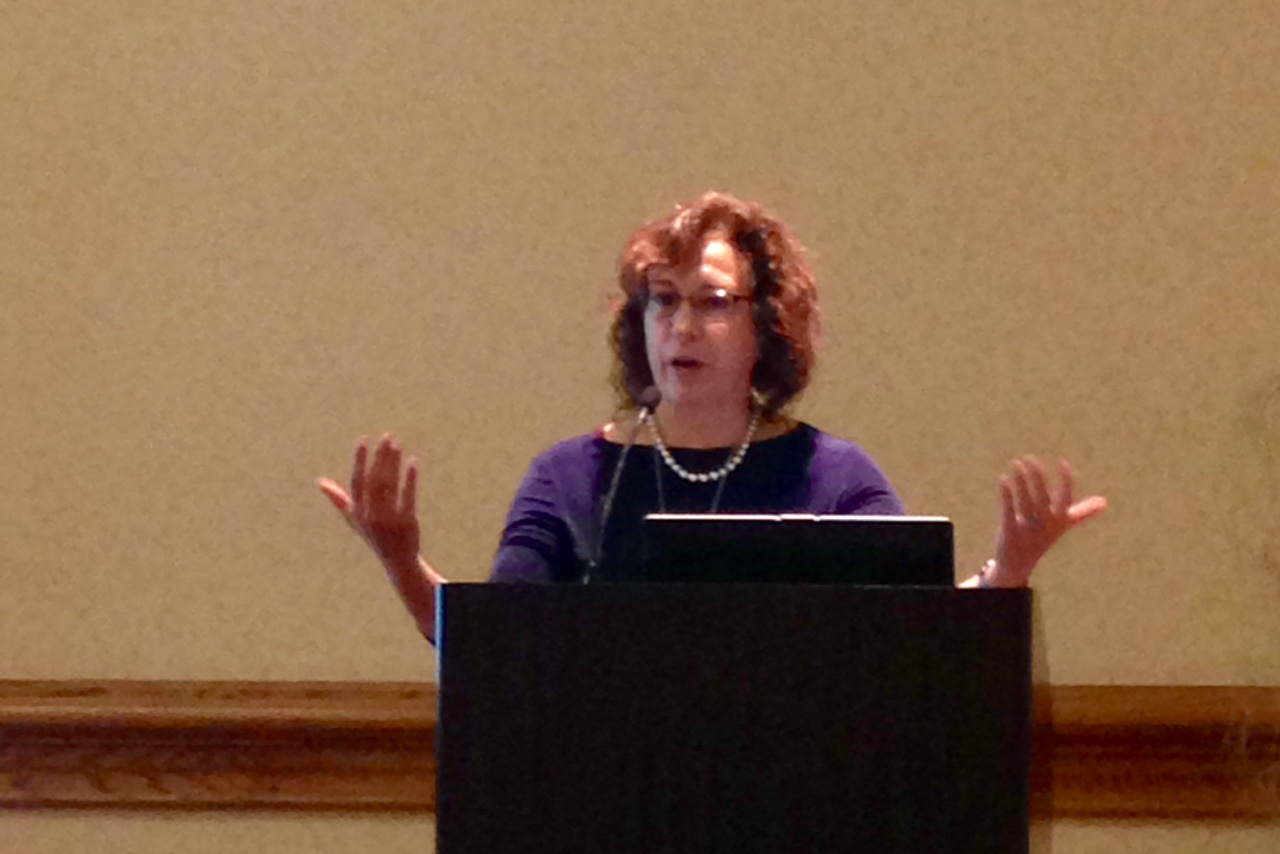In western Pennsylvania, a region with a very small and scattered Latin American population, Patricia Documét, M.D., Dr.P.H., discovered that if you want to forge community connections to improve health, it helps to loosen up.
And so a soccer game became part of the process of recruiting and retaining Latino immigrant men to serve as “promotores” who would go into the community and help other men like them get access to social and health services.
“We found that it was key to be flexible in hiring and training our promotores,” said Dr. Documét, scientific director of the Center for Health Equity at the University of Pittsburgh Graduate School of Public Health. “Part of that flexibility was to have team-building activities, and the men wanted a soccer tournament – so that’s what we did. And you know what? It was a lot of fun.”
Dr. Documét explained her approach to growing the “Lend a Hand to Health” intervention program to improve Latino immigrant men’s health and health care access Monday at the American Public Health Association’s (APHA) annual meeting in New Orleans.
In addition to the soccer tournament, the program loosened its recruitment standards, eliminating the necessity of a high school degree. As a result, her team hired and trained a diverse group of nearly a dozen men originally from seven Latin American countries with educational backgrounds ranging from no high school education all the way to graduate degrees.
The “promotores” – a Spanish word that loosely translates to a person who helps promote a cause – successfully connected with 184 Latin American men in Western Pennsylvania in an effort to improve their health and well-being. The promotores would stay in touch with the men, assisting them with things like setting up doctor appointments or trying to help with immigration issues.
Among the positive outcomes of the program were that nearly 60 percent of the men reported drinking less after the promotores connected with them.
“It can be very lonely to be part of such a disconnected population in a country where you may not understand or trust the health system,” said Dr. Documét. “This can cause negative health consequences, such as drinking or depression. The promotores work to counteract that.”
Dr. Documét is working to possibly replicate the program in another region, building upon what her team learned through recruiting and training promotores in Western Pennsylvania.









